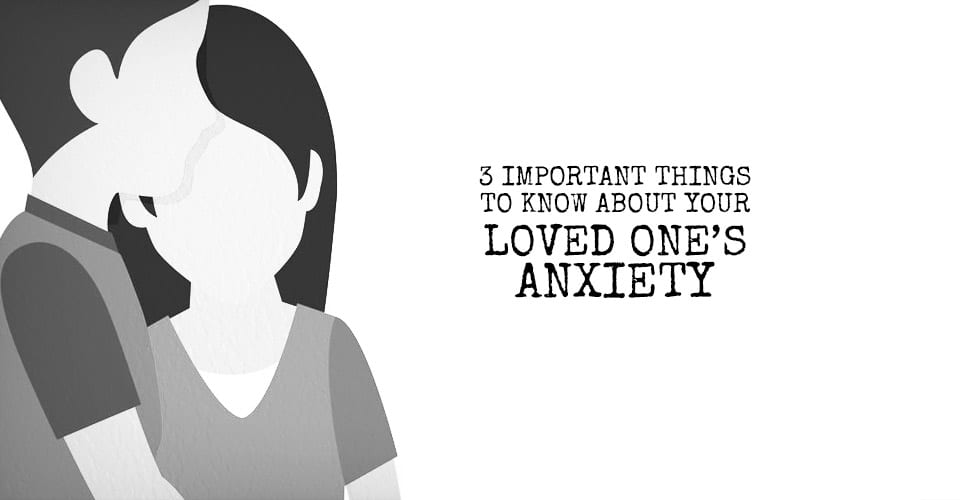“Anxiety is love’s greatest killer. It makes others feel as you might when a drowning man holds on to you. You want to save him, but you know he will strangle you with his panic,” wrote Anaïs Nin.
Loving someone with anxiety is a challenge.
However, if you can get through the difficult moments, you are sure to find a partner who is empathetic, compassionate, creative, and deeply intelligent. A busy mind is a blessing and a curse. It can take you down and it can make you come alive.
For a person with anxiety, the greatest barrier to finding happiness with a partner is often a lack of understanding. It can be hard to identify with a disease that isn’t logical. For that reason, an anxious person’s partner is often left feeling helpless, frustrated, and confused.
If you love someone with anxiety, use education to take your power back.
Here are three things to know about this widespread and often debilitating illness:
1. Anxiety depletes our natural energy.
Anxious thinking takes a lot of work, and as a result we often become exhausted from activities that do not seem strenuous to an outside observer. There are two reasons for this: sleep disorders and panic attacks. Over half of people with anxiety also suffer from sleep disorders. These can lead to lethargy, fatigue, and brain fog – for all of the obvious reasons. Additionally, the panic attacks commonly seen in anxiety patients send the body into a fight-or-flight response. This, by design, drains us of our energy as a means of survival. To the world, we may be taking a test or navigating a social situation. To our body, we are running for our lives. Anxious people often describe their exhaustion as “bone-deep”. Your partner is not being lazy. They are recovering from a very real physical trauma.
2. Your partner needs a lot of time to themselves.
A person with anxiety can not be available to you at a moment’s notice. Due to the energy drain described above, the importance of other projects in their lives, and fear of certain situations specific to your loved one, they may miss out on some special times with you. Don’t make them feel guilty for this. They already do. Instead, encourage their decision to engage in self-care. These practices are extremely important to managing anxiety. Your partner is not being selfish by caring for themselves. By doing so, they will become better able to engage in a loving and healthy relationship with you. Respect their need for time and personal space, even if it sometimes feels excessive.
3. Anxiety’s effects are very physical.
Although categorized as a mental illness, the physical effects of anxiety can be scary and devastating. When I become anxious, I feel like I am drowning. I become light-headed, my chest hurts, and my heart races. I often have trouble breathing. The physical symptoms of anxiety are different for everyone. In some people, it can manifest as stomach pain, tension headaches, excess sweating, dizziness, shaking, muscle spasms, or a wide range of other behaviors. Many people experience intense physical pain as a result of their anxiety. It is not all in our heads. It is in every part of our being.
“I’ve spent most of my life and most of my friendships holding my breath and hoping that when people get close enough they won’t leave, and fearing that it’s a matter of time before they figure me out and go,” wrote Shauna Niequist. Give your loved one a safe space, and allow them to breathe. Nurture their sense of trust in you. The best things in life rarely come about easily, and your partner just might be one of these treasures. Learn to appreciate the overly active nature of their mind, and cultivate a sense of safety in your relationship.
Love them wholly, anxiety and all.



